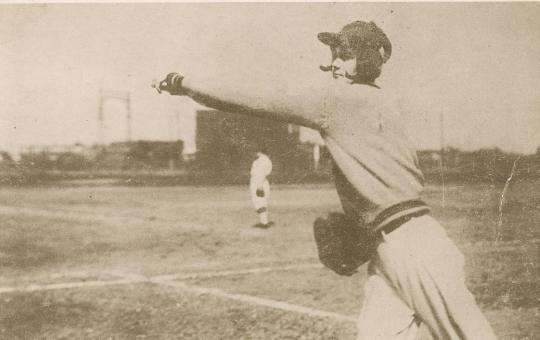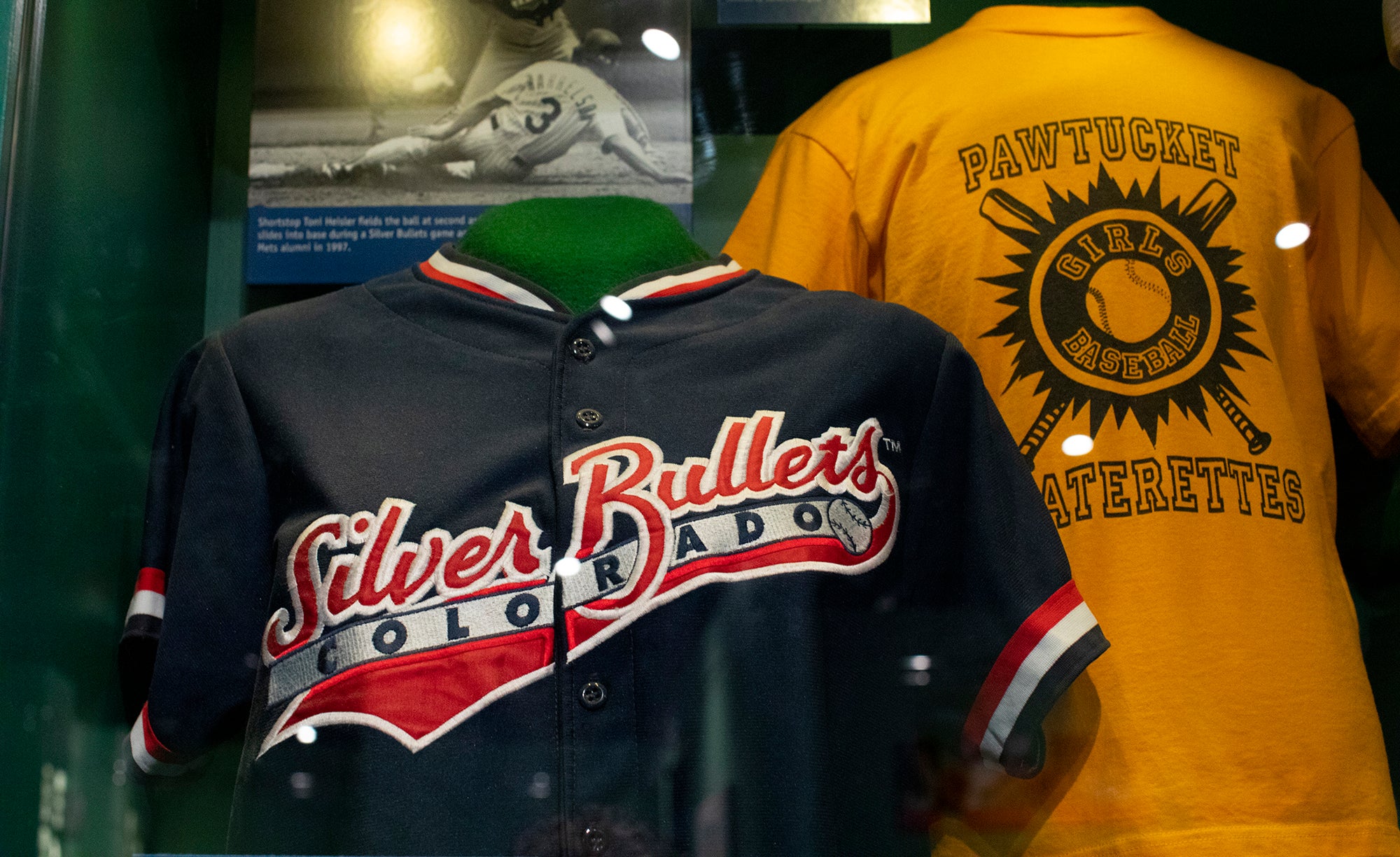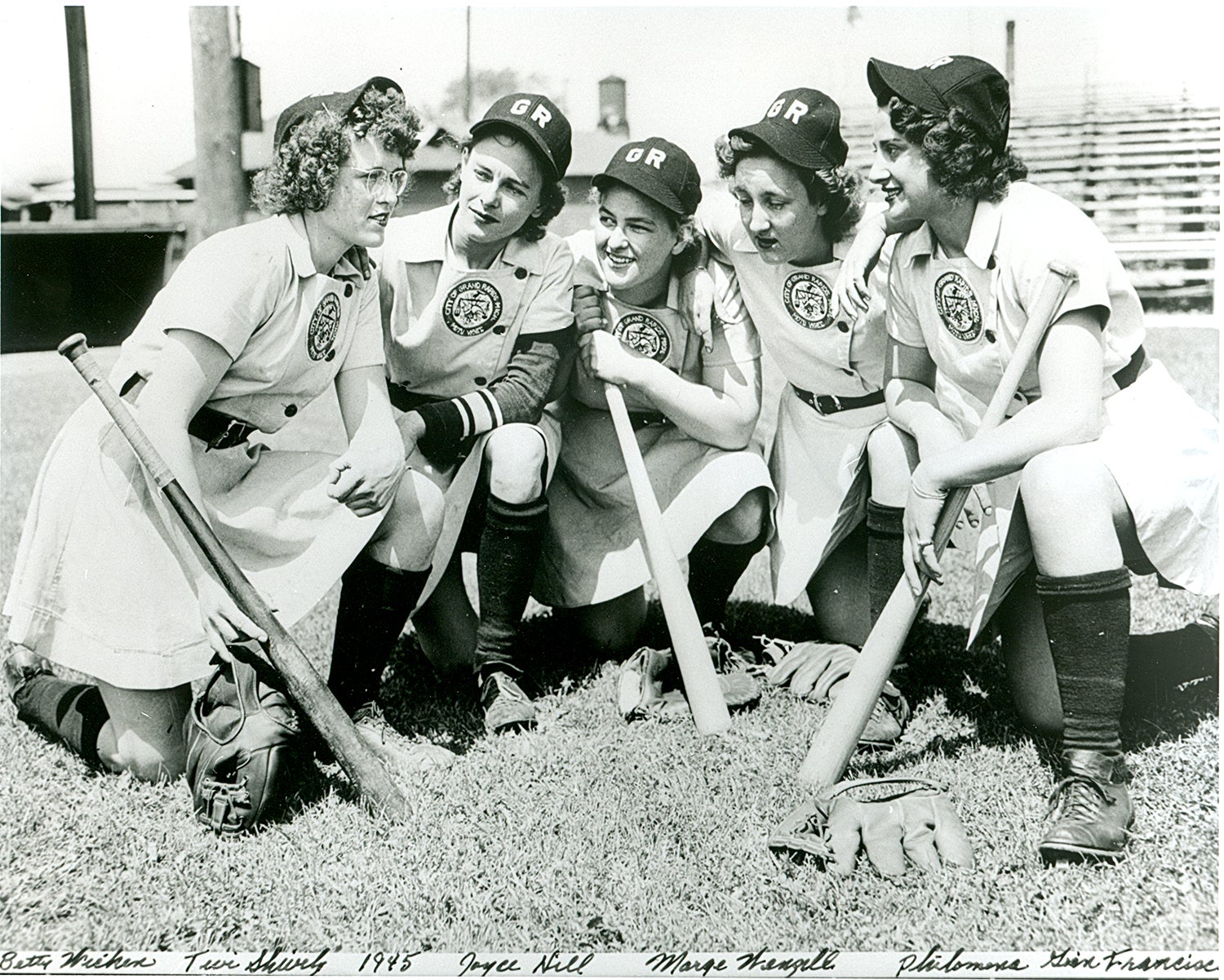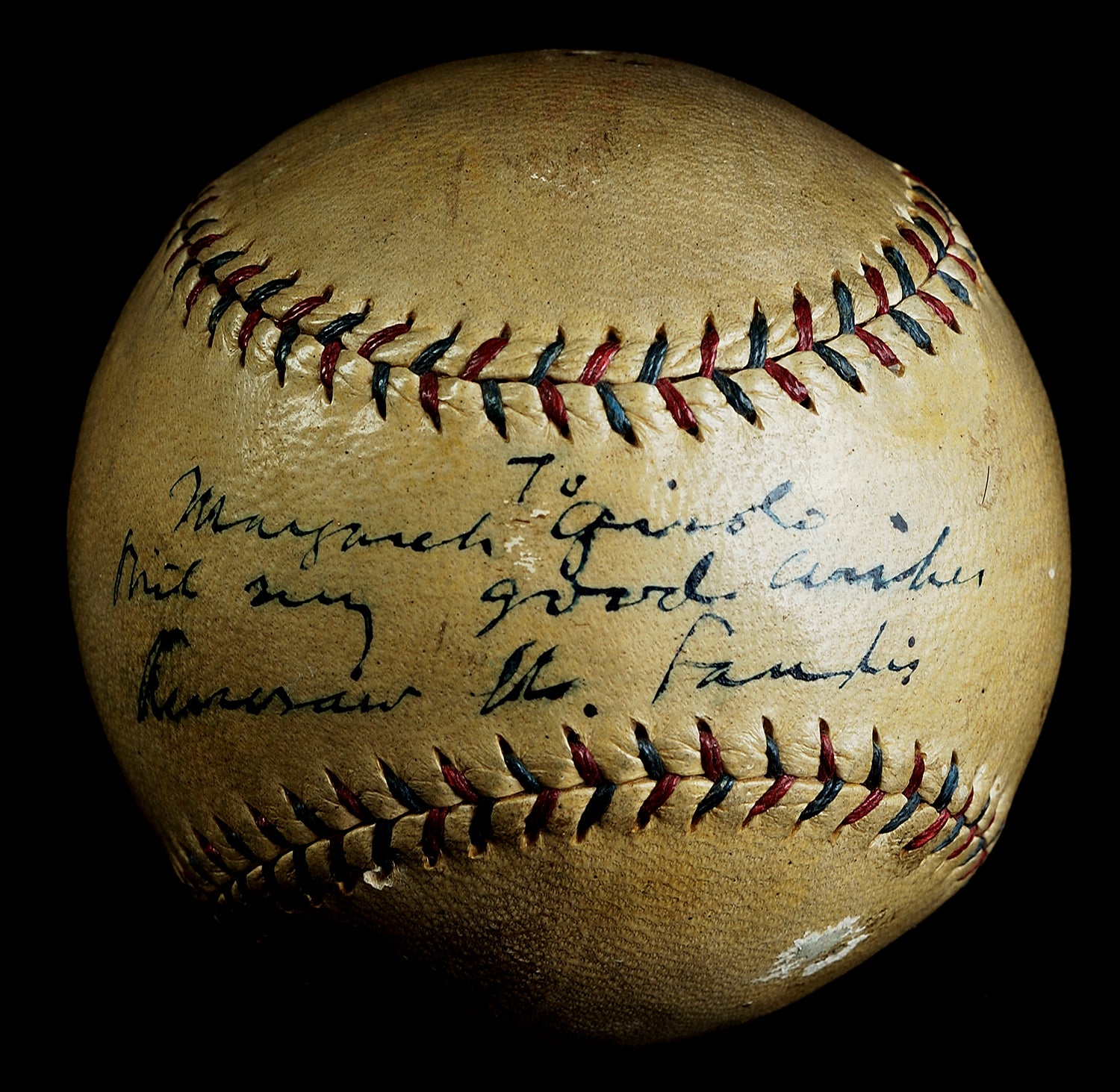#Shortstops: Postcards from Japan
Leona Kearns was willing to travel the world for the chance to play baseball. In 1925, that meant harrowing travel that eventually would result in one of the game’s great tragedies.
Kearns grew up in western Illinois as one of seven children. Though she worked in the fields and played several sports growing up, Leona’s true passion was baseball. She was good enough to play for the local men’s team by age 14. At 6-foot tall it was hard to miss Kearns, and in 1925 a scout for the Philadelphia Bobbies saw her play and knew the team needed her.
In one of her journal entries while at sea, Leona noted that her teammates weren’t that good at playing baseball – “they just think that they can.” Leona’s observations were cemented when the Bobbies lost the first three games they played in Japan. She didn’t tell her parents of the losses however, instead writing to her mother they were having a good time.
The Japanese media and fans wanted to like the Bobbies, but the team could not adequately compete against men’s teams.
Mary O’Gara, meanwhile, received a donation of ¥12,000 – about $6,000 – and used this money to take the nine remaining Bobbies back to America. Ainsmith and his wife waited to see if they could get enough money to take the three girls back, but he was only able to get enough to cover passage for him and his wife. So, on Dec. 27, 1925, Eddie Ainsmith and his wife sailed home, leaving behind Leona, Nella and Edith in Japan.
Leona had just stepped out on deck when a gigantic wave rose over the ship. She turned and shouted to Nella Shank to get inside and began running toward the bulkhead when the wave crashed down over the ship. After it receded, Leona was gone. She had been washed overboard by the wave. Her body was never found. She was just 17 years old.
Joella Travis was a 2018 library research intern in the Hall of Fame’s Frank and Peggy Steele Internship Program for Youth Leadership Development






